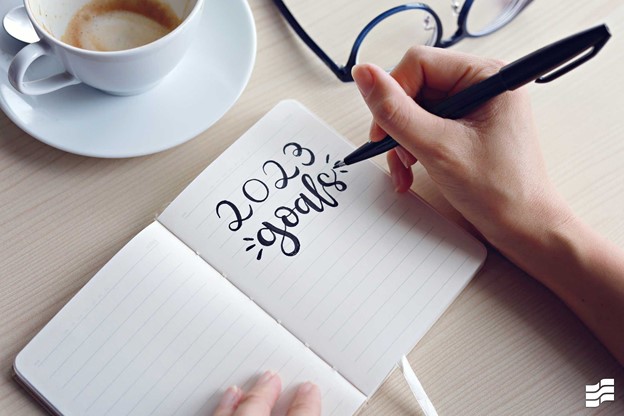Why is it Important to Have a Checking Account

 Meg Schutte
Dec 26, 2022
Meg Schutte
Dec 26, 2022
You probably have a few items on your wishlist for 2023. Maybe you want to buy a house, upgrade to a nicer car, take out a personal loan to remodel the kitchen, or finally apply for a credit card with perks. Whatever form of financing you need, be prepared for it to cost you more because of rising inflation and interest rates. The best way to combat the increase is to have a good or excellent credit score so you’re more attractive to banks, credit unions, and online lenders. Most assess your creditworthiness based on FICO and/or VantageScores, which range from 300 to 850, with 700 considered "good." A higher score can work in your favor, helping you to secure more approvals for loans and lines of credit, lower interest rates when you borrow, and lower monthly payments. It can save you hundreds, even thousands of dollars, over the course of the loan.

Take These 6 Steps to Raise Your Credit Score
You want your financial picture to be as favorable as possible. There are so many ways to give it a boost, and you can start today. Some are quick to do, while others take a little more effort, but all will help you get closer to better lending terms. This is what lenders look at most:
1. Pay. Bills. On Time. This is the #1 thing lenders look at to see your reliability in handling debt. Show you’re responsible by never missing a payment, or paying late, or ignoring a pile of bills on your desk. Lenders don’t like charge-offs, defaults, repossessions, foreclosures, third-party collections, bankruptcies, and tax liens. Try to keep your record clean and current.
2. Be the Boss of Your Credit Report: This is YOUR data and incredibly valuable to your financial health. If you don’t do anything to improve your score, at least find out what it is so you know how you stand and why you might not be getting approved for credit cards etc. Equally important is taking the time to review your credit report. Typically, every year, you can get a free credit report from the major credit reporting bureaus (Experian, TransUnion, and Equifax). Because of the lingering pandemic, you can also access a free weekly report for all three bureaus through December 31, 2023. Many banks and credit card issuers provide this information free of charge. Definitely check it once a year, if not monthly, and fix anything you might find wrong with it.
3. Take Charge of Your Credit Cards: While they give you freedom and flexibility, this is the easiest place to get into debt, accrue late payments, spend beyond your means, and red flag you to lenders. Take a more responsible and smart approach to using your credit cards.

4. Piggyback On Someone Else’s Credit Card: Bad credit? No credit? Too young to get your own credit card? You do have options to build credit and a history of handling money. You can become an authorized user on another’s credit card, like a sibling, parent, partner or friend. But make sure:
While you will have your own card and access to the credit limit, the primary account holder is the only one that can make changes. *The account will appear on your credit reports, including the payment history and balance, establishing a financial profile for you.
*Not all credit card issuers report account activity to an authorized user’s credit reports. Please check with your credit card issuer whether it is reporting authorized user’s activity to authorized user’s credit report.
5. Protect Your Financial History: This is what tells lenders your story. The longer that story is, and the more positive it is, the better. Staying on top of it keeps you informed and prepared to make changes that can benefit you. So while it’s tempting to pay off a credit card and shut it down, don’t - because having lengthy relationships with lenders can help your overall credit score. Same goes for paying off student debt and auto loans.
6. Keep Up the Good Work: You turn around one day and wonder why our debts have gotten so high. It can happen so quickly. On the other hand, working to improve your credit score will take a lot longer, but it’s worth it. Adopting proactive financial habits will benefit you in the long run. Other smart moves:
Monitor your credit with Bank of Hope’s Credit Sense SM
Available through online/mobile banking.
Meg Schutte is a Bank of Hope Blog contributor.
The views and opinions expressed in this article do not necessarily represent the views and opinions of Bank of Hope.


